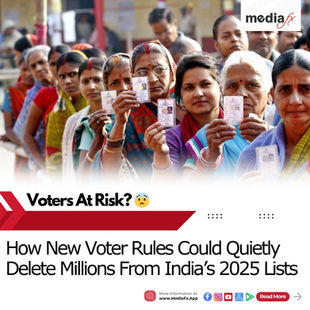📱 Is Social Media the New Addiction? 🤳 Study Reveals Shocking Bodily Responses! 😱
- MediaFx

- Mar 8, 2025
- 3 min read
TL;DR: A recent study found that while scrolling through Instagram, users experience a slowed heart rate and increased sweating, indicating deep immersion. However, when interrupted, stress responses spike, suggesting addictive behaviors similar to substance dependencies. 📉💦

Hey there, folks! Ever found yourself lost in the endless abyss of Instagram reels or TikTok videos? 🙋♂️ Well, you're not alone! A recent study has shed light on how our bodies react when we're deep into our social media feeds, and the findings are pretty eye-opening. 👀
The Study Deets 📊
Researchers hooked up 54 young adults to devices that measured their heart rates and sweat levels. They were asked to scroll through Instagram for 15 minutes, just like they would in their daily lives. For comparison, they also read a news article on their phones before diving into the 'Gram. 📱📰
What Did They Find? 🧐
Heart Rate: While scrolling through Instagram, participants' heart rates slowed down. This suggests a state of relaxed immersion, similar to how we feel when engrossed in a good book or movie. 📖🎬
Sweating: At the same time, there was an increase in sweating. This might sound contradictory, but it indicates a heightened state of arousal, meaning our bodies are alert and engaged. 💦
Interruption Stress: When their scrolling was interrupted, participants showed stress-related responses. This mirrors withdrawal symptoms seen in other forms of addiction. 🚫😰
Why Does This Matter? 🤔
These physiological responses hint that social media platforms, especially ones like Instagram, can draw us into a deeply engaged state. When this engagement is suddenly cut off, our bodies react negatively, much like how someone addicted to a substance might feel during withdrawal. This raises concerns about the potential addictive nature of social media. 📵
The Bigger Picture 🌍
This isn't the first time social media's impact on our health has been questioned. Other studies have linked excessive social media use to:
Sleep Problems: Spending too much time on platforms, especially before bed, can mess with our sleep patterns. 😴
Mental Health Issues: There's a correlation between heavy social media use and increased rates of anxiety and depression. 😟
Self-Esteem Issues: Constantly comparing ourselves to the highlight reels of others can lead to feelings of inadequacy. 🪞
What Can We Do? 🛠️
If you find yourself glued to your screen more often than you'd like, here are some tips to regain control:
Set Time Limits: Use apps or built-in phone features to limit your daily social media usage. ⏰
Create No-Phone Zones: Designate certain areas or times, like the dining table or before bedtime, as phone-free. 🚫📱
Engage in Offline Activities: Pick up hobbies that don't involve screens, like reading, hiking, or painting. 🎨
Be Mindful: Pay attention to how you feel during and after using social media. If it's causing negative emotions, it might be time to take a step back. 🧘♀️
MediaFx's Take 🎤
At MediaFx, we believe in promoting a balanced and healthy lifestyle. While social media has its perks, it's essential to be aware of its potential pitfalls. The working class, especially the youth, should be cautious of how these platforms can influence our well-being. Let's use technology as a tool for empowerment, not as a chain that binds us. ✊
So, next time you find yourself endlessly scrolling, remember to take a break and engage with the world around you. Your mind and body will thank you! 😊













































